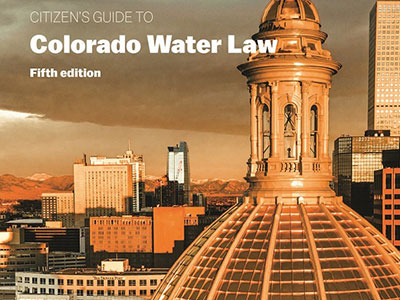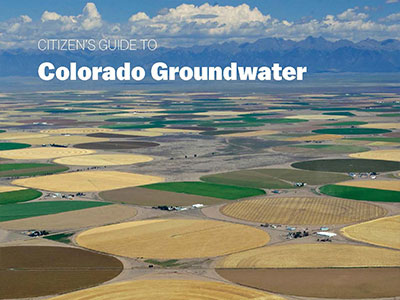Water Rights
All water in Colorado is a resource owned by the public. In creating water rights, Colorado law distinguishes between waters of the natural stream, which includes surface water and tributary groundwater, and other groundwater, which includes designated groundwater, non-tributary groundwater and Denver Basin groundwater.
Obtaining a Decree
Most new water users can no longer appropriate water by simply going out to the stream and digging a diversion ditch. Modern water projects involve a complex process of planning, permitting, engineering and financing. To obtain a conditional water right decree, the applicant must show there is unappropriated water available for appropriation, taking into account the historical exercise of decreed water rights.
The South Platte, Arkansas and Rio Grande basins have long been considered over-appropriated. Within those watersheds there may be some water still available for appropriation during a small part of the year or only in some years. In over-appropriated areas, a junior water user must seek a decree to approve out-of-priority diversions using an augmentation plan or change a decreed existing water right.
Obtaining a court decree can be a complex process typically necessitating assistance by attorneys and professional water engineers. The law, however, allows individuals to represent themselves. Corporations may appear before the water court referee without an attorney but must proceed before the water judge for trial only through an attorney.
Access Rights for Water Facilities
The right to cross another person’s land to construct, maintain and operate a water facility such as a reservoir, ditch or headgate has always been an essential feature for obtaining and maintaining a water right. Maintenance may include activities such as cleaning ditches, weed control, or monitoring water diversions, among others.
If applying for a water right, the applicant must have the necessary legal interest in the land where the water facilities will be built, or show that they can obtain it. If the landowner does not consent, the Colorado Constitution and statutes provide a private right of condemnation across the private lands of others for the construction and operation of water facilities, such as pipelines and reservoirs, upon payment of just compensation to the property owners. Consent is required when a governmental entity owns the land because governmental land cannot be condemned. This is usually obtained through a permit process.
Change of Water Rights
Colorado water law provides a market for water rights. A water right may be changed to another type and place of use, retaining its priority date. However, (1) the change is subject to obtaining a revised court decree, (2) the water right is measured by beneficial consumptive use made in time, location and quantity under the original appropriation and decree over a representative historical time period, and (3) the revised decree contains conditions maintaining return flow patterns, alleviating material injury to other water rights and preventing enlargement of the water right.



